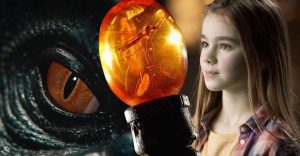10 Unpopular Opinions About K-Dramas, According To Reddit

Netflix’s foray into the world of Asian dramas has boosted the popularity of the movies and TV shows that highlight and celebrate the continent’s cultures and traditions. K-dramas, especially, have an impressive fandom, both on Netflix and other broadcasting channels.
While these dramas are wildly popular, there are some controversial opinions about them in general and even for specific shows and certain actors, such as Lee Min-ho and IU. Viewers share many of these on Reddit, sparking some interesting discussions on a genre that’s loved in many parts of the world.
K-Dramas Are Overrated

K-dramas are undoubtedly popular, especially with the blow-up resulting from the 2021 drama, Squid Game. One Reddit user posted that “Kdramas are overrated and people don’t give other Asian dramas as much attention.”
To a greater extent, there’s some merit to this opinion as some of the most popular Asian dramas on streaming platforms like Netflix are from Korea. However, other Asian dramas are starting to get more attention, for example, the highly popular Japanese drama, Alice In Borderland. There are even several K-dramas that are remakes of other Asian dramas but way more popular than the originals, such as Boys Over Flowers.
Time-Jumps Aren’t Necessary

A common plot point at the end of several K-dramas is an epilogue-style scene showing the main leads several years later. For most of these couples, the scene features them married and with kids. The Redditor –NO_CHILL– commented on these types of ending as “an annoying trope that adds nothing to the relationship they’ve built up over the series.”
Such epilogues are often meant to give the audience closure on the characters they spent several episodes watching by giving them a sneak peek into the future. Unfortunately, a lot of dramas employ a similar storyline for these epilogues making the move more cliché than enjoyable.
K-Dramas Shouldn’t Have Multiple Seasons

One reason why K-dramas are so popular is that the storyline usually lasts one season comprised of 16 to 20 episodes. Lately, however, more dramas are moving towards multiple seasons with fewer episodes. Kingdom, for example, is a K-drama with 2 seasons comprised of 6 episodes each.
Reddit user PetiteEngineer commented about dividing the dramas into multiple seasons and said “the reason I watch K-dramas is because it’s done in 16 weekly episodes.” For a lot of people, the single-season dramas are more enticing because they don’t drag out the story. However, lately, a lot of the dramas have stories that are too complex to resolve in one season, leaving the audience hoping for more.
Not A Fan Of The Enemies To Lovers Trope

Like many TV shows, K-dramas are also guilty of using certain tropes with slight variations. One of the most common is the enemies to lovers one where the main couple can’t stand each other at first, but eventually, fall in love and live happily ever after. It’s such a popular plot, mainly because viewers enjoy it. However, some, like the Reddittor fatterirl, don’t enjoy this particular storyline and said, “I’d much rather watch a drama where there’s instant attraction and chemistry.”
The insta-love trope is another common one that’s often a hit or miss with the audience. When done right, the love-at-first-sight thing works out great, giving the viewers a couple to root for. However, some enjoy the drama that comes with enemies turning to lovers more because of the angst and tension as viewers await the turning point from hate to love.
The Childhood Connection Twist Is Unnecessary

K-dramas are popular for delivering some epic plot twists. A common one, especially in romance, is the one where the main couple is shown to have a childhood connection that’s revealed midway or at the end of the drama. Reddit user kingniel commented about this type of plot twist and said, “sometimes I just want adults meeting as adults and falling in love without some repressed first love memories.”
It’s an interesting plot point that adds an extra layer of intrigue when executed well, for example in Secret Garden when Kim Joo-won remembered that he’d seen Gil Ra-im when she was a teenager after her father died saving him. Most times it’s usually unnecessary and doesn’t add much to the story.
Sad Endings Aren’t So Bad

Most TV shows and movies end on a happy note, with good winning against evil or the main couple living happily ever after. The Reddit user –NO_CHILL– commented about the habit shows have of pulling random plot armor to force a happy ending and said, “I don’t hate sad endings especially if it makes sense.”
While happy endings are great and ideal, when they’re too contrived, it’s harder to enjoy and accept them. Some K-dramas include heartbreaking plot twists and sad endings well and even though they’re tragic, they’re acceptable when it makes sense such as The Smile Has Left Your Eyes.
Dislike For The Gender Bender Storylines

Some K-Dramas have storylines where a character has to pretend to be the opposite gender, similar in style to Shakespeare’s Twelfth Night. An example of a K-Drama that uses this storyline is You’re Beautiful where Ko Mi-nam who’s about to become a nun, covers for her twin brother by disguising herself as him and joining a popular boy band, so he doesn’t lose his chance to become an idol.
The Reddittor tistock shared their opinion about the trope and said they “hate, with a deep abiding loathing, gender benders.” This is likely because few shows manage to pull this story off well, for example, Secret Garden which put a unique spin on it where the characters were switching souls and played each other’s characters with hilarious accuracy.
The Leads Falling In Love Is Cliche

Every K-drama has two lead characters who often fall in love and end up as a couple at the end of the show. It’s kind of become expected, with viewers rooting for the couple from their first interaction. The Reddit user fzzah had an opposing view and said “I don’t like how K-dramas always need to have the leads end up as a couple.”
While having the leads end up in a romantic relationship has been the natural course that most of the dramas follow, it’s understandable that some viewers feel it’s become cliché. In a number of K-dramas, there’s often a second romantic lead, resulting in a love triangle that most viewers don’t enjoy, but the character still ends up with the main lead.
Dramas Without Physically Attractive Leads Aren’t Worth Watching

Under a post about unpopular opinions related to K-dramas, the Reddit user cuteseal said “I can’t get into romance dramas where I don’t find the leads physically attractive.” A few other Redditors agreed in the comments and gave some examples of K-dramas they felt they couldn’t watch because of the looks of the leads.
While controversial, it’s actually a view several users share. In fact, many unpopular opinions posted on Reddit with regards to certain actors in popular ones such as the supernatural K-drama, Goblin, and 1% of Something are commentaries on their looks and how they entice viewers to watch or put them off entirely.
Idol Actors Do Well In K-Dramas

Some K-dramas have the tendency to cast K-pop idols as a way of hyping up the show. Several Reddit comments state dislike for this tactic as most idols aren’t very good actors, resulting in overhyped shows that most viewers don’t actually enjoy.
However, the Redditor Mags02 had a different view and said they “don’t care about ratings (most of the first few times an idol acts can be a bit rough).” While some idols eventually get better as they take on more roles, many Redditors are in opposition of this casting tactic and prefer dramas without these celebrities.
About The Author


















